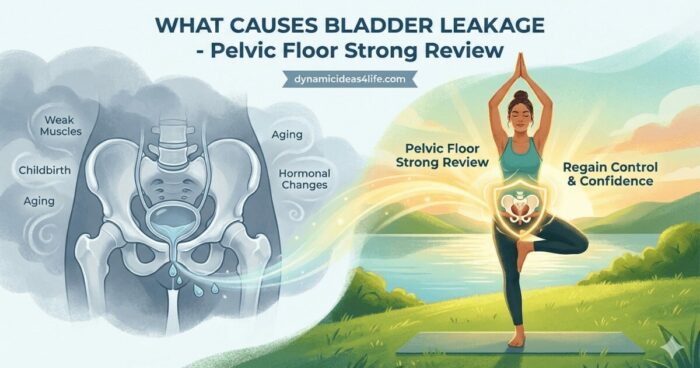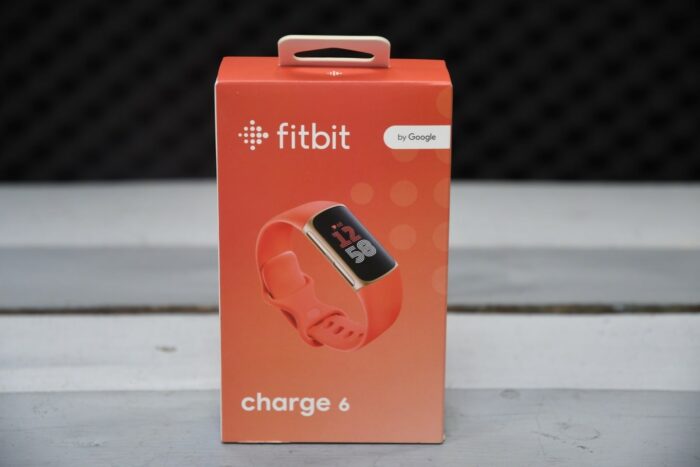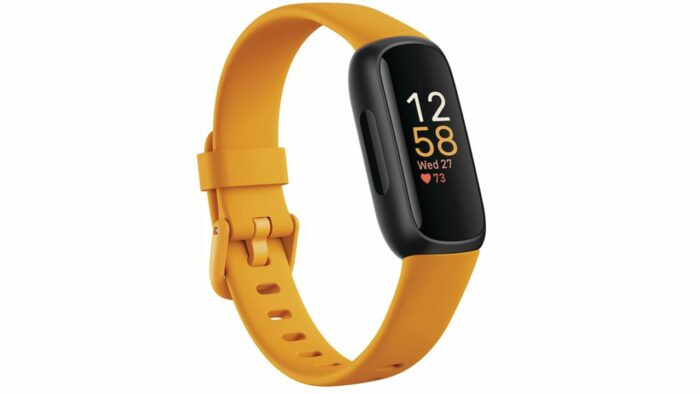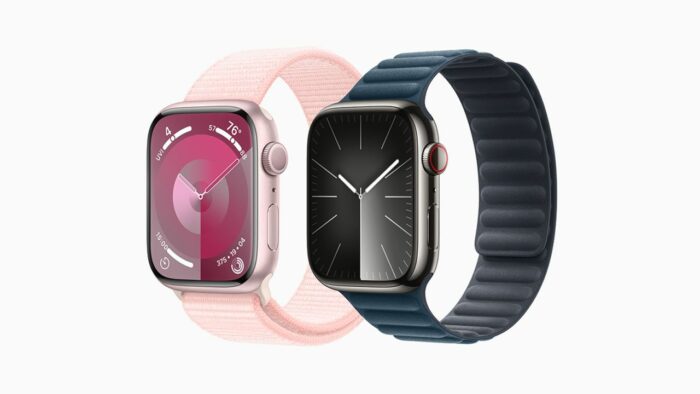I’ve noticed how the buzz around Fitness Trackers for Tracking Steps has grown into a roar over the last few years. Once a novelty, these devices are now fixtures on the wrists of health enthusiasts and casual walkers alike. They serve as digital cheerleaders, pushing us to reach our daily step goals and live more active lifestyles.
But why is tracking your steps so crucial, anyway?
Well…, it boils down to the basics of movement. Doctors and health experts widely recommend walking as an accessible form of exercise that bolsters cardiovascular health, aids in weight management, and also as something that can improve overall mood.
Keeping track of your steps ensures you meet the suggested activity levels to reap these benefits.
But with a market flooded with options, how can you pinpoint which fitness tracker is the right match for your lifestyle?
It’s not about finding the fanciest gadget, but rather identifying the one that harmonizes with your daily routine, activity level, and personal goals.
So with this in mind, I want to help you understand what to look for in a fitness tracker, from key features to wearing comfort, to help you make an informed decision before buying one.
Please keep reading if you would like to learn more…
Top-rated Fitness Trackers For Tracking Steps
According to our research from a quick search on Google here are some of the best products to consider;
- Fitbit Charge 6
- Fitbit Inspire 3
- Fitbit Sense 2
- Garmin Forerunner 945
- Apple Watch 9
- The Samsung Galaxy Watch 5 Pro
- Oura Ring (Generation 3)
- Fitbit Luxe
- Huawei Band Pro
- Amazfit Bip 3 Pro
- Honor Band 5
- Xiaomi Mi Band
Obviously people will have their own preferences but here are some you might want to take a look at.
The Mechanics Behind Step Tracking: How Does It Work?
![]()
Firstly, you slip on your fitness tracker and step out the door, but have you ever wondered how this sleek device tallies up your steps?
Well…, Fitness trackers use a combination of sensors and algorithms to track movement. The heart of most trackers is the accelerometer, a device that detects changes in your motion.
When you walk or run, your body generates distinct patterns of movement. The accelerometer reads these patterns and sends the data to the tracker’s processor. Then, here, specialized algorithms analyze the patterns to distinguish between a step and other movements, like (for instance) typing or cooking.
However, no fitness tracker is infallible. The accuracy can be influenced by where you wear the tracker – wrist, hip, or ankle – and your individual gait. Manufacturers constantly refine their algorithms to improve accuracy, some even incorporate GPS to better capture your movement outdoors.
If you’re curious about getting the most accurate step counts, you might adjust where you wear your tracker or sync it with your smartphone’s sensors for reinforced data.
Remember, the goal isn’t just the number on the display; it’s the consistent movement that counts towards your fitness.
2024’s Top-Rated Fitness Trackers: Features and Performance
I’m often asked about the best fitness trackers on the market, especially when it comes to counting steps accurately. To give you the insights you deserve, I’ve taken a close look at what’s currently out there, and I’m ready to share my findings.
But before I delve into specific models, let’s talk about how they’re rated. Fitness trackers are assessed based on a blend of;
- Accuracy,
- Battery Life,
- Water Resistance,
- Comfort, and
- Compatibility with Other Related Apps.
So, what’s topping the charts in 2024?
My research and user feedback point to a few standout devices. The new Apple Watch 9 stands out for its impeccable accuracy and extensive health features. Or, If you’re not in the Apple ecosystem, the Samsung Galaxy Watch5 Pro is another excellent choice, offering robust fitness tracking paired with smartwatch capabilities.
BUT If you’re looking for something specifically tailored to step counting, the Fitbit Charge 6 holds its own with a user-friendly interface and reliable step tracking.
And for those who prefer a no-frills, straightforward tracker, the Xiaomi Mi Band offers simplicity and performance at an unbeatable price point.
I find it important to compare features side by side. Pay close attention to battery life—some fitness trackers can go a week on a single charge, while others need a charge every couple of days. Water resistance is another key feature; many trackers now boast swim-proof capabilities.
Comfort and wearability are crucial too—a tracker should feel natural on your wrist.
And finally, app compatibility can make or break your experience; ensure your chosen device syncs well with your smartphone for a seamless fitness monitoring experience.
Maximizing Your Tracker: Tips for Accurate Step Counting
To get the most out of your fitness tracker, accuracy is essential. It begins with how you wear it. Depending on your device, you may need to wear it on your non-dominant wrist, as per the manufacturer’s recommendations, to get a true reading of your daily steps.
Another key aspect is ensuring the fit is snug but comfortable. A tracker that’s too loose may count extra steps, while one that’s too tight can be uncomfortable and discourage you from wearing it consistently.
Calibrating your fitness tracker can also play a significant role in accuracy. Some devices allow you to enter your stride length or even run a calibration walk or run. This helps the tracker better understand your movements and measure your steps more precisely.
The data you receive is only as good as the input it gets. Regularly updating your personal information such as weight, height, and age helps the tracker provide a more accurate account of your daily activity.
Understanding the data is the next step.
Your tracker might count steps but knowing what counts as a step and what doesn’t is crucial. If your tracker seems to overcount when you’re not actually walking, check if your wrist movements or if when your traveling in a vehicle this is affecting the step count.
Integration with smartphones and other devices enhances the tracker’s ability to keep an accurate log. When syncing with your phone, your tracker can use both its sensors and the phone’s GPS to give you a detailed map of your activity.
This combo offers a fuller picture of your daily habits.
Yet, what’s inevitable is that no tracker is perfect. There may be days when your step count seems off. On those days, use your tracker as a motivational tool rather than an absolute measure.
The important thing is consistency. Regular use offers a wealth of data that can show trends in your activity over time.
Step Tracking in Your Fitness Routine
I understand you want steps to be more than just numbers; you want them to propel your fitness journey forward. Setting and reaching your step goals can be highly satisfying, but how do you make these numbers work for you day in and day out?
Your fitness tracker is a virtual coach, encouraging you to get up and move. To begin, you need to know where you stand, quite literally. Assess your current activity level and set a baseline. How many steps do you take each day without trying? Knowing this gives you a launching pad.
Now, it’s time to set some goals. Be realistic; if your baseline is 3,000 steps, aiming for 10,000 steps overnight might set you up for disappointment. Increase your steps incrementally.
For example, one week, aim for 3,500, then keep adding to it until you hit that coveted 10,000-step mark.
But, don’t stop there – get creative in boosting those numbers. Walk while talking on the phone, take the stairs, park further from the store entrance. Every step counts and they all add up.
It sounds simple, but this mindset shift can lead to big changes.
Remember, a fitness tracker is a means to an end. It isn’t just about the number of steps; it’s about how walking more integrates into a larger health and wellness plan.
Celebrate the small victories, like reaching a week’s step goal, and watch how these contribute to larger success in your fitness journey.
A fitness tracker can do wonders for your motivation. Watching your step count rise throughout the day can give you that extra push you need when your energy is waning.
It’s a tangible reminder that you’re moving forward, literally one step at a time.
Additional Health Benefits of Fitness Trackers
I’ve discovered that fitness trackers offer much more than just counting steps. They’re a gateway to a wider health perspective, often overlooked when the focus is too narrow.
These devices can monitor heart rate, making it possible to optimize workouts for maximum efficiency. Tracking sleep patterns can also reveal insights into recovery and rest, contributing to overall well-being.
From my experience, using a fitness tracker can have the surprising benefit of boosting psychological (mental) health. The clear visual evidence of achievements assists in maintaining motivation and can foster a sense of accomplishment.
Many fitness trackers now incorporate community and social elements. I’ve found that challenging friends or joining online competitions adds a layer of excitement and accountability that can further enhance commitment to fitness goals.
In essence, fitness trackers can be powerful tools that contribute to a comprehensive approach to health. By understanding and utilizing their full potential, I advocate for an integrated experience that not only tracks every step but also supports the journey to a healthier lifestyle.
Best For Functionality
- Fitbit Charge 6
Best For Comfort
- Fitbit Inspire 3
Best For Compatibility
- Apple Watch 9
Best Fitness Tracker For Value
- Xiaomi Mi Band
Our Pick
- Fitbit Charge 6
This is a difficult one really but we feel overall that the Fitbit Charge 6 is great for its wide range of features. Its ECG Heart Reader, Google Integration and GPS are all great functions. It is lightweight and easy to wear and it is pretty decent value for money. Although we do feel the GPS could work better at times.
In Conclusion
Now, I realise not everyone will be as obsessed as I am about things like tracking steps. Many people I am sure will be able to commit to exercise and improving their fitness without the need for technology. Although I digress it is good to know what you are actually doing.
For me knowing that I need to reach a certain amount of steps for the day keeps me going for just that short while longer. I’d definitely recommend Fitness Trackers for Tracking Steps. It’s nice to see what you are doing.
I shall finish up this article here but I hope this has been helpful for you. Best regards;
Alex B. Chivers
Dynamicideas4life.com






Anxiety and Depression BiOptimizers blood pressure supplements blood sugar control blood sugar support supplements cognitive function digital products Dr Sam Robbins Exercise Gut Health Gut Health While Travelling Health Tips for Travelling Healthy Living heart health HFL how to lower blood sugar levels How To Lower Cholesterol insulin resistance joint health supplement keto dieting Keto Diet Weight Loss leaky gut supplements leptin resistance list Magnesium deficiency Matt Gallant mental health multivitamins Nootopia Nootropics nutrient supplements Probiotics Probiotic Supplements reverse type 2 diabetes stress and anxiety stress relief Supplements vitabalance vitapost Wade Lightheart weight loss articles weight loss diet plans weight loss product reviews weight loss supplements weight loss tea






